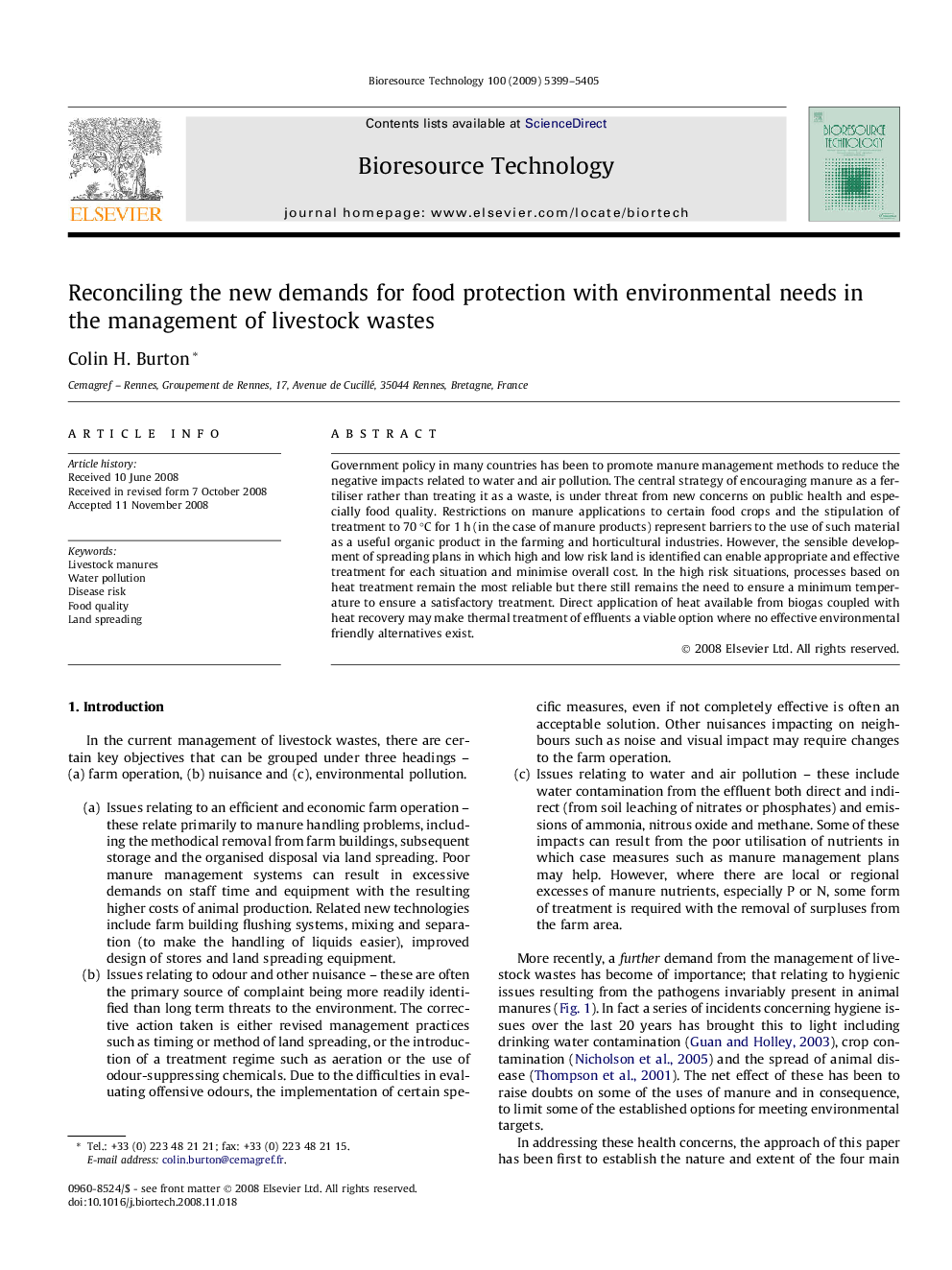| Article ID | Journal | Published Year | Pages | File Type |
|---|---|---|---|---|
| 683985 | Bioresource Technology | 2009 | 7 Pages |
Government policy in many countries has been to promote manure management methods to reduce the negative impacts related to water and air pollution. The central strategy of encouraging manure as a fertiliser rather than treating it as a waste, is under threat from new concerns on public health and especially food quality. Restrictions on manure applications to certain food crops and the stipulation of treatment to 70 °C for 1 h (in the case of manure products) represent barriers to the use of such material as a useful organic product in the farming and horticultural industries. However, the sensible development of spreading plans in which high and low risk land is identified can enable appropriate and effective treatment for each situation and minimise overall cost. In the high risk situations, processes based on heat treatment remain the most reliable but there still remains the need to ensure a minimum temperature to ensure a satisfactory treatment. Direct application of heat available from biogas coupled with heat recovery may make thermal treatment of effluents a viable option where no effective environmental friendly alternatives exist.
